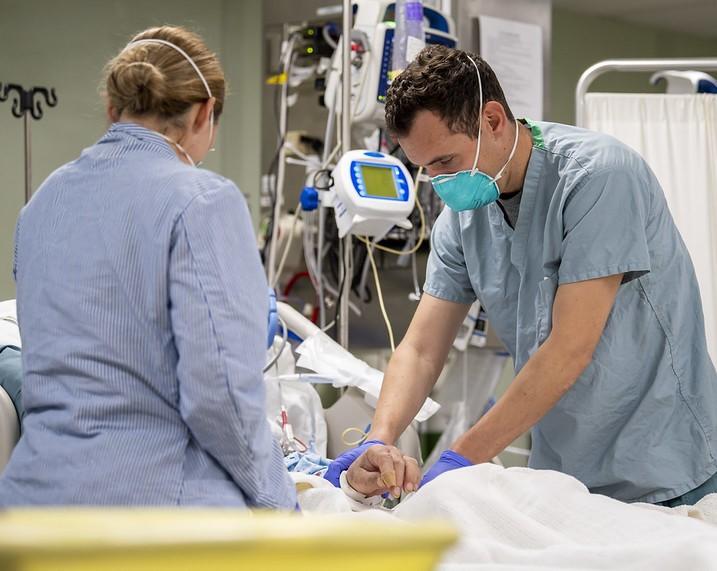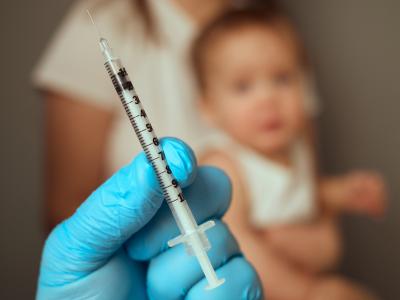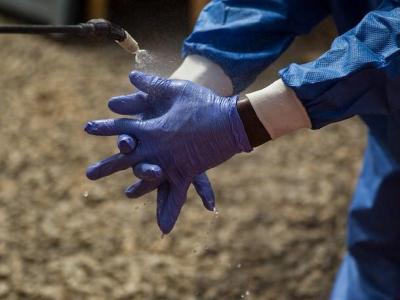COVID-19 patients hospitalized in 2021 could be on the hook for thousands of dollars in bills for hospital, physician, and paramedic care after insurance companies started charging members for these costs again, an analysis of 2020 US data today in JAMA Network Open suggests.
In 2020, most health insurers voluntarily waived copays, deductibles, and other cost sharing for hospitalized COVID-19 patients, but many did away with those waivers in early 2021.
The authors published an earlier version of the study on the medRxiv preprint server on May 30, 2021; since then, a Kaiser Family Foundation analysis has shown that 72% of the two largest insurers in each state and Washington, DC (102 plans total) ended their waivers by August. Another 10% said they would phase them out by the end of October.
Out-of-pocket costs $1,500 to $3,800
A team led by University of Michigan researchers analyzed data on 4,075 COVID-19 hospitalizations of Americans with private or Medicare Advantage insurance from March to September 2020. The study used the IQVIA PharMetrics Plus for Academics Database, which collects claims data from multiple US insurers.
Among all patients, 33.8% were privately insured, 46.5% required intensive care unit (ICU) stays, and the average length of stay was 7.3 days (9.2 for ICU patients).
The investigators found that the vast majority of COVID-19 patients weren't billed for hospital services such as room and board, suggesting that their insurance companies footed the bill. But patients who were responsible for payment were out thousands of dollars.
That means that COVID-19 patients who have sought emergency or hospital care since that time could face out-of-pocket costs of roughly $3,800 (for those with private insurance), while those with Medicare Advantage plans could pay $1,500, the researchers said. Total out-of-pocket costs were higher than $4,000 for 2.5% of privately insured patients, compared with 0.2% of Medicare patients.
The out-of-pocket costs are just a small fraction of total hospital charges, however. The authors said that insurers cap hospitalization costs of COVID-19 patients with private insurance at, on average, $42,200, while the cap is $21,400 for those using Medicare.
Insurers who issue pandemic-related waivers may still not cover all hospital care. In the study, patients often were billed by both physicians and paramedic companies, with 71% of patients with private insurance receiving a bill for hospital-related services averaging $788. Forty-nine percent of patients with Medicare Advantage coverage were billed for an average of $277.
Of 63 hospitalizations of patients with private insurance, 4.6% of privately insured patients had out-of-pocket facility-related costs, compared with 1.3% of 36 with Medicare.
"Many patients were billed for professional and ancillary services, suggesting that insurer cost-sharing waivers may not have covered all hospitalization-related care," the authors wrote. "High cost sharing for patients who were billed by facility services suggests that out-of-pocket spending may be substantial for patients whose insurers have allowed waivers to expire."
Delays in seeking care possible
While some insurance companies may have waived cost sharing for hospital care or facility services, others may have erroneously billed patients for both physician and paramedic services because they didn't implement the waivers appropriately or because the provider didn't code the care as COVID-19–related.
Hospitals that received special pandemic funding cannot bill patients directly for costs of care beyond that covered by insurance, and the federal government reimburses hospitals for the care of uninsured COVID-19 patients, the authors noted.
"Many insurers claim that it is justified to charge patients for COVID-19 hospitalizations now that COVID-19 vaccines are widely available," lead author Kao-Ping Chua, MD, PhD, said in a University of Michigan news release. "However, some people hospitalized for COVID-19 aren’t eligible for vaccines, such as young children, while others are vaccinated patients who experienced a severe breakthrough infection."
Chua said that he advises patients who received a bill for coronavirus-related hospitalization even amid a waiver to contact their insurer to ensure that it wasn't sent by mistake. "One of my main concerns is that the threat of high costs might cause some patients with severe COVID-19 to delay going to the hospital, increasing their risk of death," he said.
The researchers said the results have implications for policy makers, the unvaccinated, and Americans who have underlying illnesses that raise their risk of severe breakthrough COVID-19.
To prevent this occurrence, Chua recommended that federal policy makers mandate that insurers waive all costs of COVID-19 hospitalizations—as they do for testing and vaccination—throughout the pandemic; this legislation was proposed in the US House of Representatives in 2020 but did not pass. He added, though, that policy makers will probably not take this action because of widespread public outrage against the unvaccinated.



















